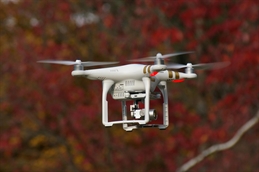
Industry sources have outlined a variety of responses to the ongoing Covid-19 pandemic, ranging from the broad brush to the detailed.
Those working in the industry – and especially on its health and safety side – should brace themselves for more work coming soon, and requiring a great deal of attention to multiple details, the World Free Zones Organization (WFZO) says.
The WFZO, a non-profit organization representing the world’s free zones outlined 11 ways to deal with pandemic – some of which are relevant to cargo.
One is investing in digital and managing risk via the data it provides. This is not only to move away from human, i.e., non-contactless, labour, but also to get a clear, almost granular, picture of where emerging business can be had quickly as well as where problems are arising.
WFZO advocates companies generating their own data through proprietary digital systems and gathering and blending public data to get detailed and shareable pictures of where businesses and goods are. This is needed in the cargo sector, says Samir Hamrouni, CEO of the organization.
“More conservative segments such as automotive, healthcare and logistics need to invest in risk management systems that incorporate more data from more sources. This will let them accurately model trends and provide valuable early-warning signs of problems in their operations,” he said.
WFZO also suggests managing cash – having a stronger balance sheet to prepare for uncertainty and rebuilding with contingency plans for further disruptions.
In turn, this requires “agile logistics,” which will deliver resilience across entire networks and should be “dominated by nimble small and medium-sized enterprises that can quickly adapt to serve different needs from different international customers.”
Companies should aim for “agility in inventory management systems, in supply chains and in distribution channels, using multiple procurement sources in both goods and personnel. Efficient transport networks, offering alternative transit lanes, will contribute to resilience in the face of disruption,” Hamrouni said.
A big part of this is the creation of what Hamrouni termed hygienic value chains – now something much more important, and not just in terms of goods moved but in how the people overseeing them deal with both cargo and each other.
“Contactless transactions will become essential for retail operations. Tracking hygiene measures from manufacturing to packaging, storage, then through to road/sea/air transport and delivery will also ensure customers identify products as reliably hygienic,” he said.
Some facilities and business are already there, with the Kuwait Ports Authority (KPA) providing interesting examples of what business can do to insure safe and hygienic transportation. However, according to others, a part of the transformation has already happened and at scale.
Pre-Covid, 80% of containers were moved contacted, with the remaining 20% moving contactless. These proportions are now reversed, said Aparna Jayadevan, Group QHSE manager for Gulftainer UAE.
“We definitely take safety and hygiene as major concerns prior to the previous period,” she said during a recent Transports Events webinar.
On the people side of the equation, the KPA requests staff from the Ministry of Public Health go aboard ships to temperature- and PCR-test mariners, Yousef Abdullah Al-Sabah, director-general of the Kuwait Ports Authority and president of the Arab Sea Ports Federation, told the webinar.
KPA also bought sanitization trucks from China and what Al-Sabah called “heat detection helmets” to help identify employees who might be running a fever without needing to be near them.
On the vessel side, KPA has more extensive ship monitoring than in pre-Covid times. “We have been tracking the last 10 days of each vessel in order for us to understand where the vessel had been and had they passed through an infected country,” he said.
Another Middle Eastern destination has found another way to improve safety this year, according to Maktoum Al Houqani, chief corporate authority officer at Abu Dhabi Port, which introduced remote pilotage to cut the number of person-to-person encounters. Autonomous tugs are another area the port is looking at, he added.
The port achieved a 29% reduction in traffic incidents “mainly by adopting to scheduling and appointments.”
By Michael Mackey
Southeast Asia Correspondent | Bangkok



